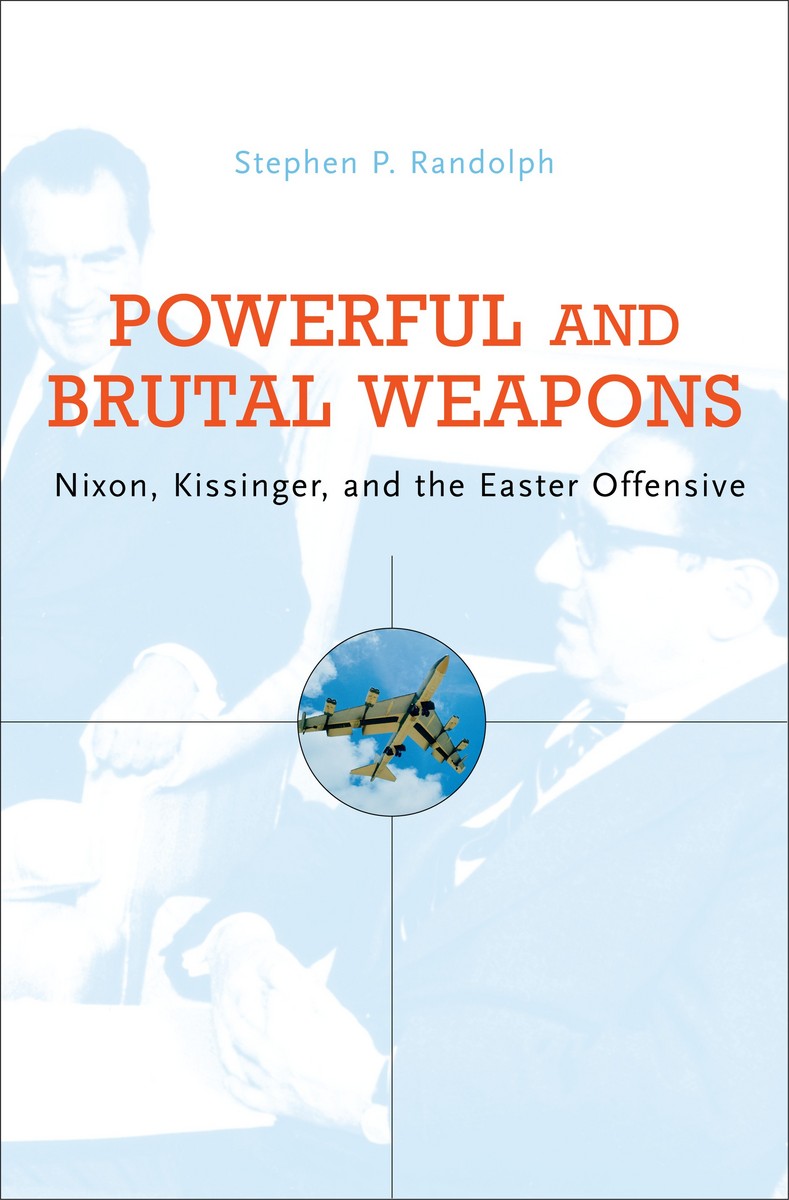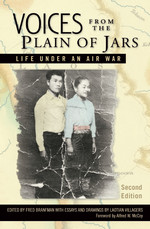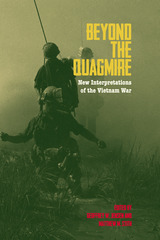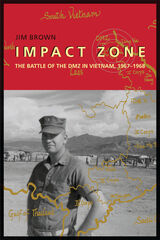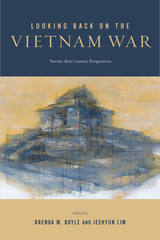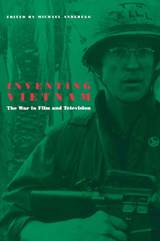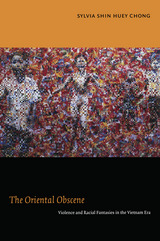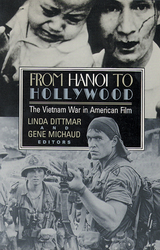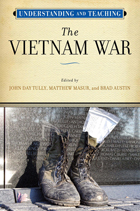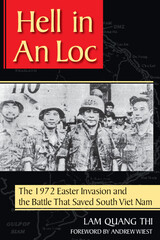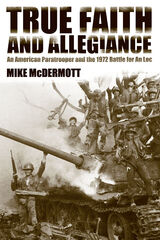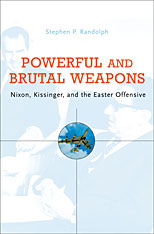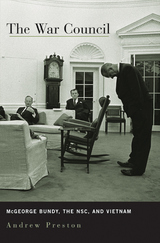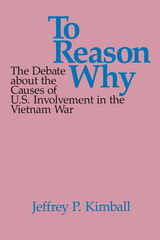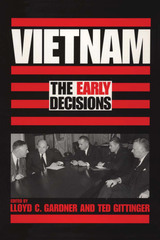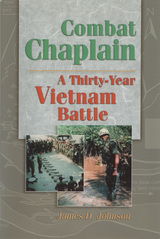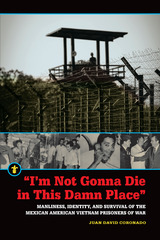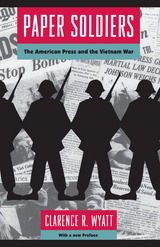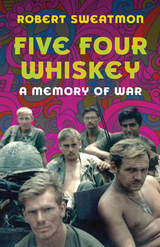The climactic Easter Offensive, the last major campaign of the American war in Vietnam, serves as Stephen Randolph's focus for this fine study of Richard Nixon and Henry Kissinger's foreign policy and use of military power. Using a wide range of sources, Vietnamese as well as American, Randolph convincingly details how Hanoi's armies were stopped. Powerful and Brutal Weapons is the most comprehensive history of this crucial campaign yet written. It should not be missed.
-- John Prados, author of Valley of Decision: The Siege of Khe Sanh
Stephen Randolph has produced a tour de force. He skillfully takes us inside the White House and over the skies of Vietnam. His analysis of Nixon's role in managing the war during the critical year of 1972--when the president was pursuing detente with the USSR, the opening to China, and his reelection bid--is brilliant. Randolph has produced a book that should be read not just by scholars and students of military history and foreign policy decision-making, but by anyone working at the highest levels of the U.S. government today.
-- James Goldgeier, George Washington University
An outstanding and eminently readable account of the penultimate battle of the American phase of the Vietnam War - the 1972 Easter Offensive – and of President Nixon's decisive reaction to this massive North Vietnamese surprise attack. Colonel Randolph takes the reader inside the corridors of power, the Oval Office in Washington, and the Vietnamese Communist Party Politburo's conference room in Hanoi, and explains how the decisions made at those lofty levels were translated into action at the tactical level. This book belongs on the bookshelves of every serious student of military history and Presidential leadership.
-- Merle Pribbenow, translator of Victory in Vietnam: The Official History of the People's Army of Vietnam, 1954-1975
For all of those who long for the good old days before the Iraq imbroglio, Stephen Randolph has written a spectacular study on the dismal processes through which the United States began to disentangle itself from the Vietnam War. In effect, Randolph has done for the end of the war what H.R. McMaster managed to do for the war's beginning.
-- Williamson Murray, co-author with Major General Robert H. Scales Jr. of The Iraq War: A Military History
A detailed but lucid account. Randolph tells the tale from three sides (American, South Vietnamese and North Vietnamese) and three perspectives--military, of course, but also diplomatic and political. And it works. Randolph has done deep research--for example, into the military archives of the North Vietnamese, who candidly noted what they'd done wrong. Unlike many military writers, Randolph pays attention to the staggering importance of logistics. (He says the U.S. surge of 1972 was unprecedented and a major feat for its time.) And as a retired colonel who once flew fighters, he knows all about military culture and military turf battles.
-- Harry Levins St. Louis Post-Dispatch
Drawing on extensive research and newly declassified materials, Randolph tells the story of how the White House overrode the objections of the Pentagon brass and the field command in Vietnam--which resulted in a display of shock-and-awe that was as impressive in the realm of realpolitik as it was on the battlefield.
-- The Atlantic
[A] brilliant if scary account of a White House running its own military show.
-- Tony Maniaty Weekend Australian
The beauty of Powerful and Brutal Weapons is that it seamlessly melds the domestic, political, diplomatic, cultural, technical, tactical, and strategic factors affecting the air war in 1972. Meticulously researched, it depends heavily on primary sources from all sides of the fight-American, North and South Vietnamese, Soviet, and Chinese. Randolph uses a chronological organizing scheme, starting with the Easter Offensive in the South and moving on to the mounting of Linebacker One.
-- David R. Mets Air and Space Power Journal
Powerful and Brutal Weapons is far more than the story of a single big campaign. It sketches out the broad architecture of the Nixon administration’s effort to extricate itself from Vietnam and Nixon’s larger aspirations in Sino-Soviet-American affairs, making clear his simultaneous willingness to use force in ways beyond what Lyndon Johnson had allowed and his keen sense that Congressional and public patience was all but gone...Randolph has made a major and important contribution to the study of the American war effort in Vietnam, of civil-military relations, and of the interplay of war making and diplomacy. It is an indispensable part of the core literature on the place of Vietnam within the larger context of U.S. policy objectives in the 1970s.
-- Donald J. Mrozek Journal of Military History
Powerful and Brutal Weapons is far more than the story of a single big campaign. It sketches out the broad architecture of the Nixon administration’s effort to extricate itself from Vietnam and Nixon’s larger aspirations in Sino-Soviet-American affairs, making clear his simultaneous willingness to use force in ways beyond what Lyndon Johnson had allowed and his keen sense that Congressional and public patience was all but gone...Randolph has made a major and important contribution to the study of the American war effort in Vietnam, of civil-military relations, and of the interplay of war making and diplomacy. It is an indispensable part of the core literature on the place of Vietnam within the larger context of U.S. policy objectives in the 1970s.
-- Donald J. Mrozek Journal of Military History
Randolph uses not only an impressive range of U.S. records but also some important fresh sources from Hanoi such as official histories and proceedings of the Politburo. The result is a remarkable achievement that brings together multiple perspectives...It is an indispensable part of the core literature on the place of Vietnam within the larger context of U.S. policy objectives in the 1970s.
-- Donald J. Mrozek Journal of Military History
